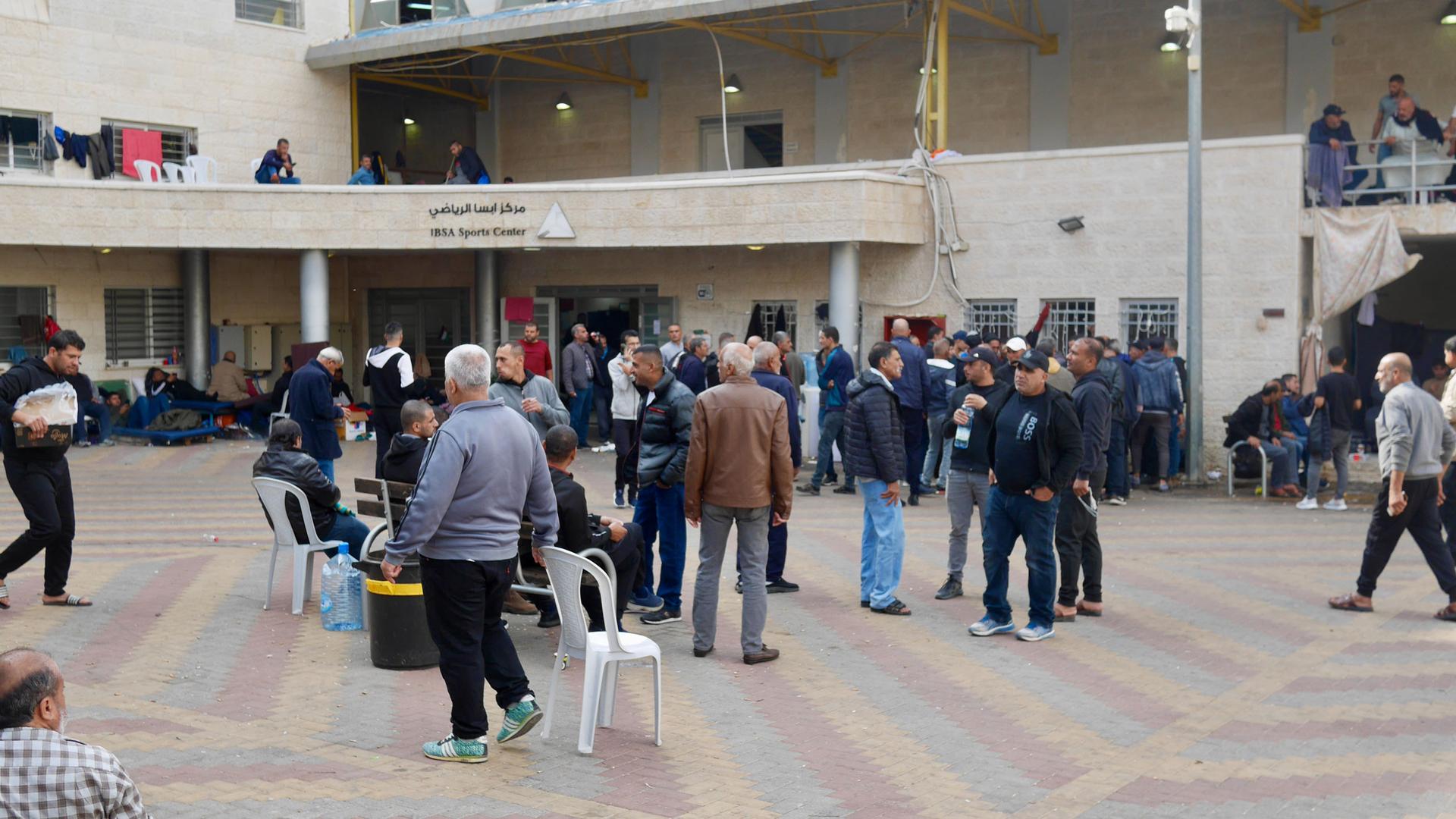Abdel-Nasser Ajrami left Jabaliya refugee camp in Gaza with his family two weeks ago, he said, because the Israeli military was bombing the neighborhood.
When reached by phone from the central Gazan city of Deir al-Balah, he said the situation is very bad.
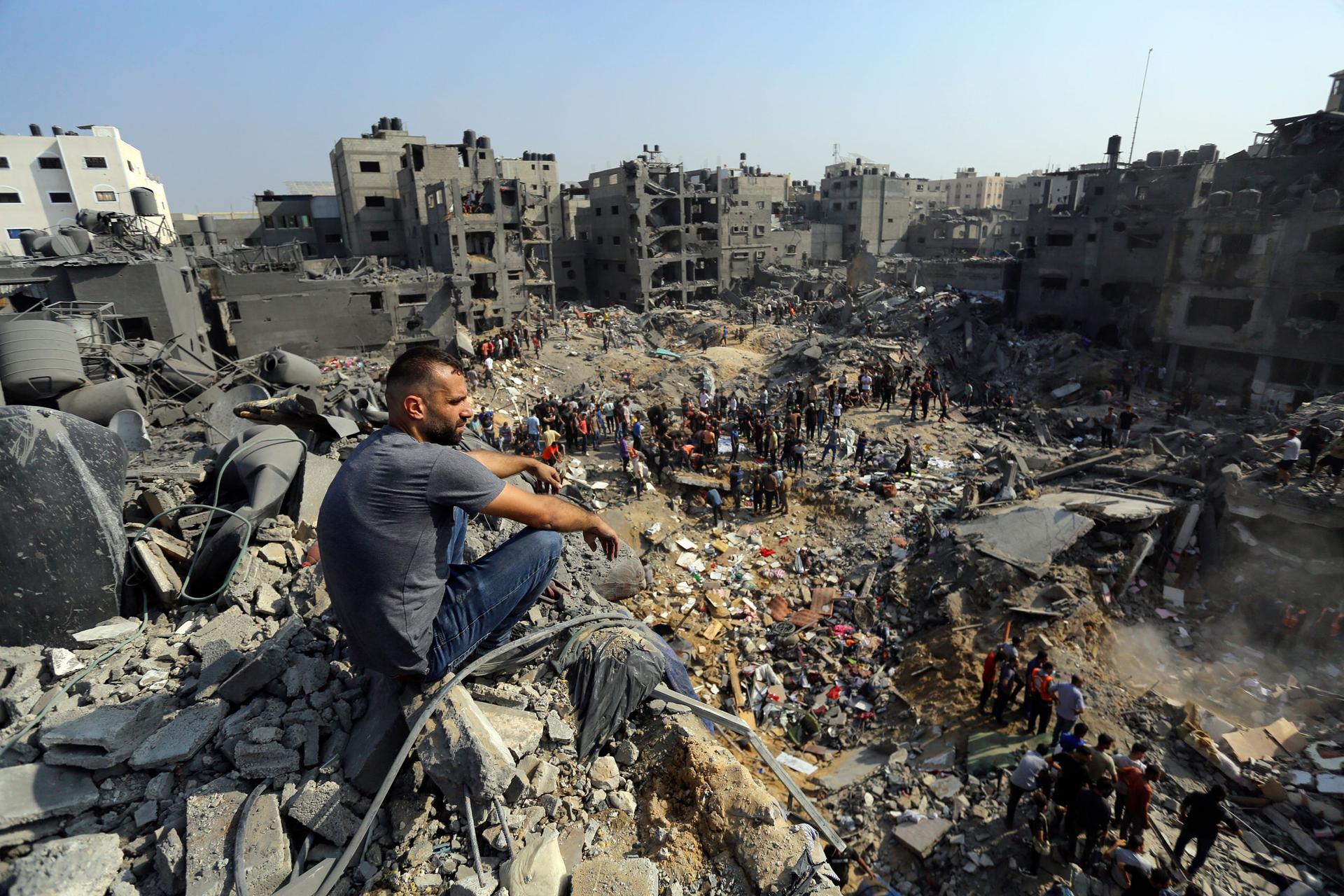
Ajrami said he got a call from the Israeli military right after their ground troops entered Gaza and was told to leave his house. The entire family — 31 people — left immediately.
“We didn’t take anything with us,” Ajrami said.
Amid the ongoing war between Israel and Hamas, Israel’s far-right finance minister, Bezalel Smotrich, has endorsed the idea of sending Palestinians from Gaza to countries that will accept them. But Palestinians say this would effectively be ethnic cleansing.
Ajrami’s family left the refugee camp around midnight. For the next four days, he said they went from house to house in Gaza City. But nowhere felt safe. Then, they got another phone call from the Israeli military telling them to go south. So they moved again.
The UN-run schools and shelters were full, he said.
Now, the family is sleeping on mattresses in the street. Food, water, milk for the infants, are all very hard to find. Ajrami said the youngest is his 8-month-old grandson.
At this point, he is looking for any place to go with the family where there’s shelter.
“The whole world is to blame for our misery,” Ajrami told The World.
Other people reached by phone in Gaza say something similar.
Abdullah Hassanein is a psychology professor from the northern Gaza Strip, now living in Rafah, in the south. He points the finger at Israel, the United States and Arab countries for the current war between Israel and Hamas.
“We are a civilian community,” Hassanein said. “We are farmers, laborers, teachers. We are not a militarized people. Why is the world letting this happen?”
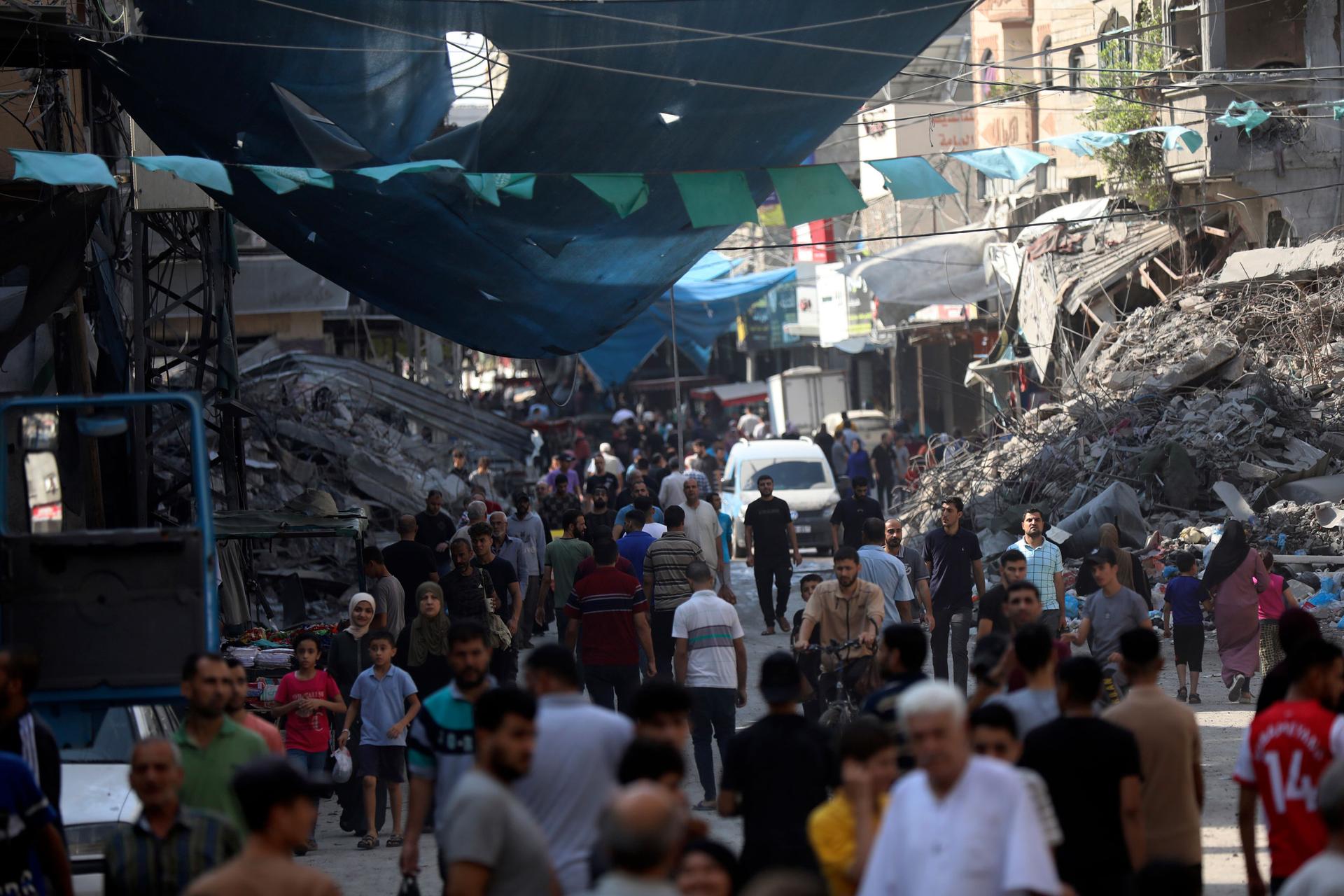
I’tidal Subhi Abu Qamar also fled with extended family from Gaza City and now stays near Rafah. She worked for the economy ministry, and she’s now retired.
Abu Qamar said what’s needed now is a ceasefire. When asked who she blames for the humanitarian crisis, she pointed out that Hamas does not represent all Palestinians.
“This is a diverse nation,” she said. “Hamas only represents a small sector of Palestinian society. How can we be held hostage by this one part of our community? For families in Gaza, it’s not clear when they’ll be able to find new homes.”
But they’re not the only Palestinians in limbo right now.
An athletic facility in the West Bank city of Ramallah has been transformed into a shelter where an estimated 2,000 men from Gaza now stay. They are temporary laborers who were working in Israel — with permission — when Hamas unleashed its deadly cross-border attack on Oct. 7.
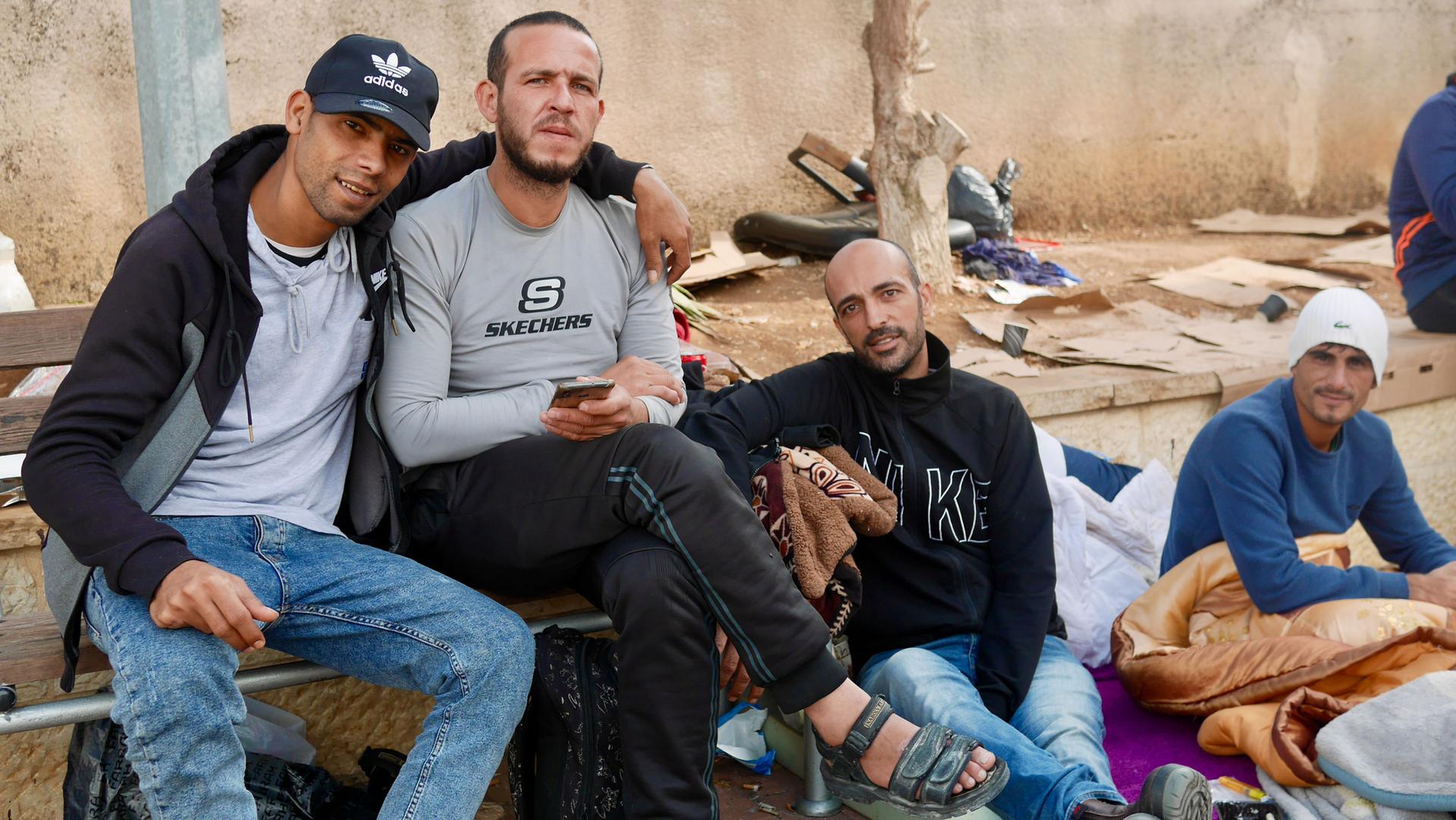
For the last five weeks, thousands of Gaza workers have been stuck here and around the West Bank.
“There’s no permit to go to Gaza. There’s no way to go to Gaza,” said Iyad Helles, a construction worker.
Sitting on a mattress next to the outdoor basketball court, he said he made good money working in Israel before the war. Since arriving here last month, he said he’s been in touch with his wife and five kids. They’re all OK. They got out of Gaza City, went south, and they’re now staying at a UN school.
But Helles said his house was destroyed. He’s hopeful about getting back home sooner than later. The road ahead, though, he says, is very bleak.
“There’s no future. All of my dreams are not there anymore,” Helles said. “To die with your kids is better than grieving while being away.”
Palestinians describe what’s happening in the Gaza Strip as a catastrophe, or a second Nakba. That’s a reference to 1948, when the state of Israel was created, the first Arab-Israeli war began, and hundreds of thousands of Palestinian Arabs were driven out of their homes or fled to neighboring countries.
Now, many are afraid that history is repeating itself and that anyone who leaves Gaza might be forever stateless. More than half of the Palestinian people are actually displaced; they are in diaspora, today.
Dmitry Diliani is a reformist leader with Fatah, the second largest Palestinian party.
“This is obviously and clearly not an option for the Palestinian people. We will not repeat the catastrophe and displacement and diaspora ever again,” Dilliani said.
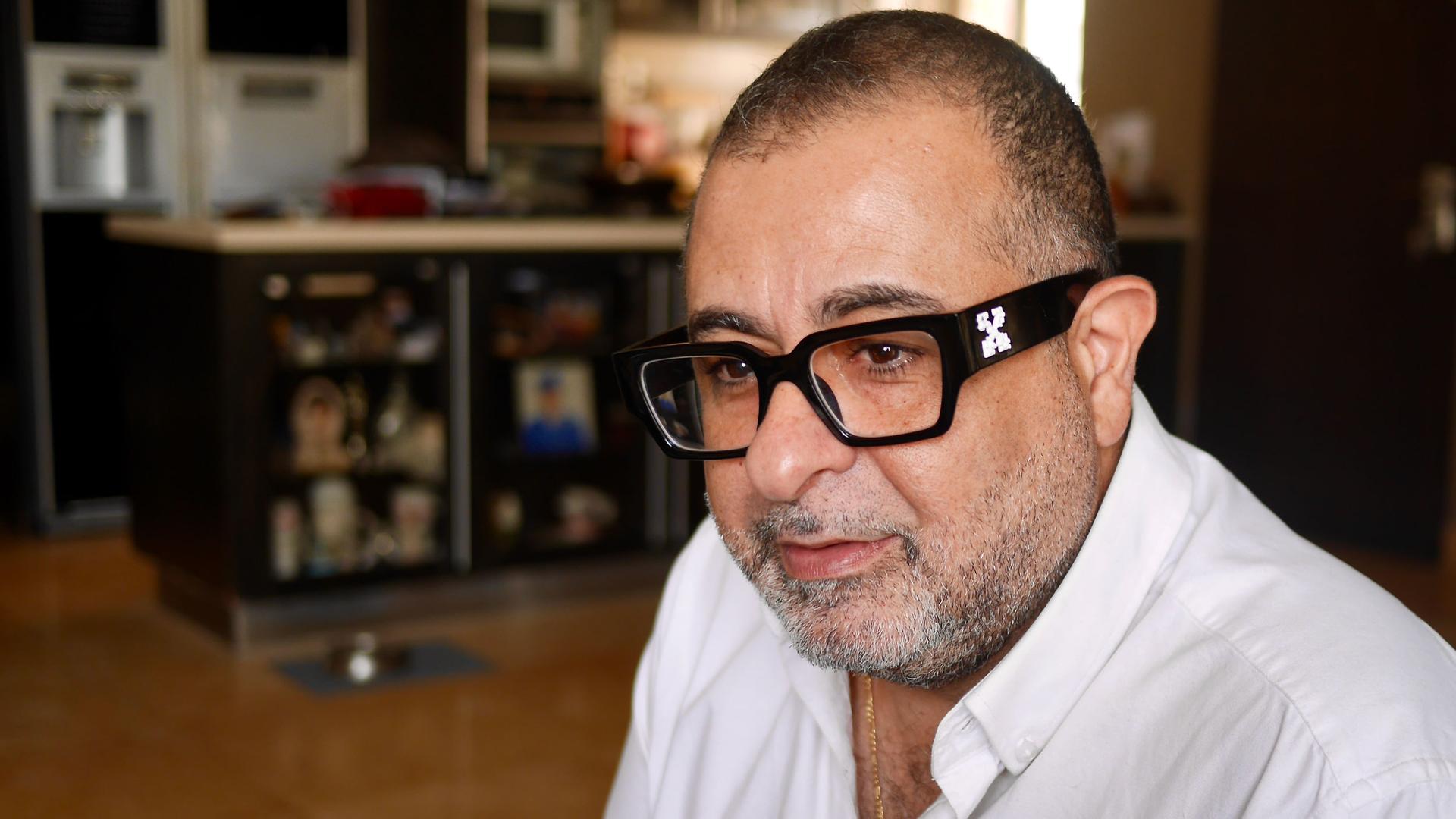
The Biden administration is urging the Israeli military to do more to prevent civilian deaths. Secretary of State Antony Blinken has also said that relocating people from Gaza abroad is not an option.
But Diliani said that’s not enough. Like many Palestinians, he’s lost faith in the United States to be an honest broker in this conflict.
